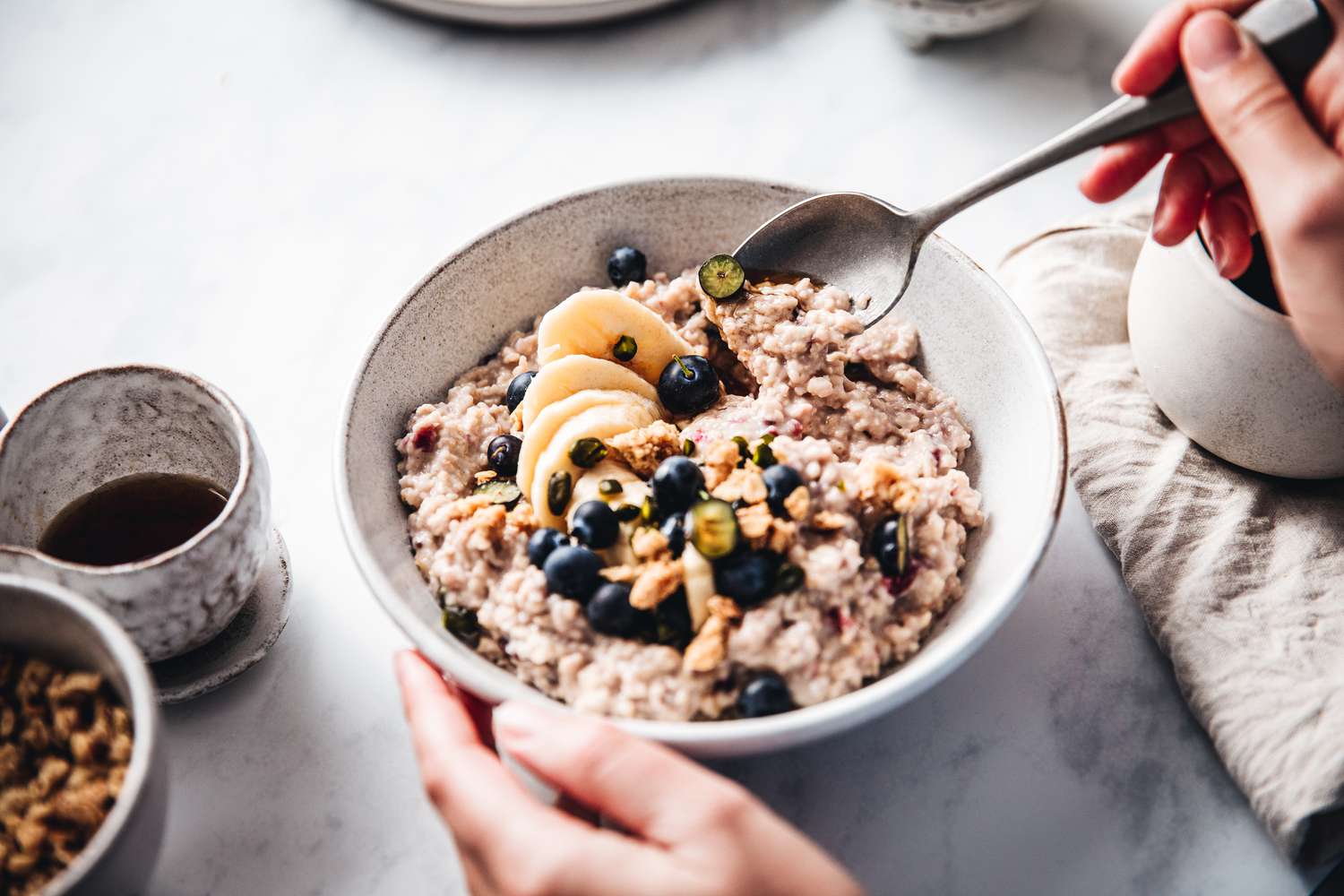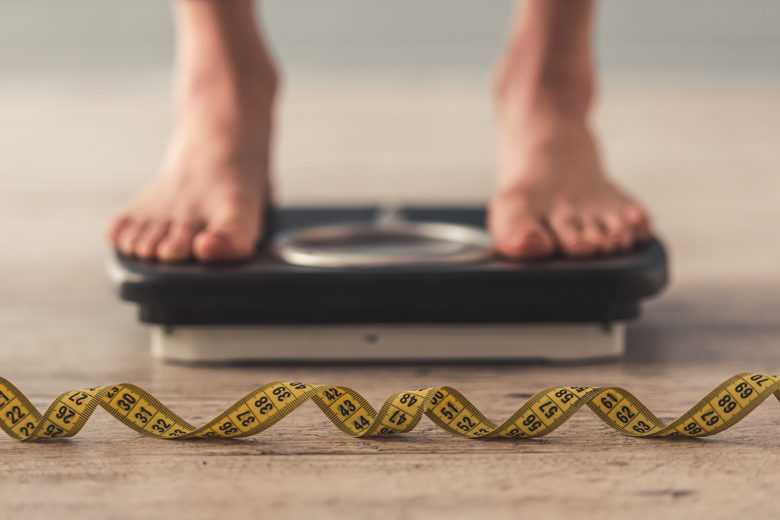
.Healthy diet or not? Find out the difference in 10 steps
Many people suffer from excess weight, which prompts them to search for a variety of different diets to lose weight! No matter how many different diets there are, the best option is to follow a healthy diet, as it offers health benefits and effective weight loss results, unlike unhealthy diets! In this article from the “Doctor Diet App” diet articles collection, we will learn about a healthy diet, the steps to maintain it, and the best diet for weight loss.
What does a healthy diet mean?
A healthy diet is the definition of a diet that aims to improve health and weight through eating healthy and balanced foods. A healthy diet is essential for maintaining a healthy body and preventing chronic diseases such as heart disease, diabetes, and cancer.
A healthy diet is based on eating a variety of foods rich in important nutrients, such as fruits, vegetables, whole grains, healthy proteins, and good fats. It is recommended to avoid processed foods, soft drinks, and foods high in saturated fats, salt, and added sugar.
An unhealthy diet is one that relies on eating unhealthy and unbalanced foods, leading to poor health and weight gain. An unhealthy diet includes consuming large quantities of processed foods, fast food, soft drinks, sweets, and crisps. This diet results in increased levels of saturated fat, sugar, and salt in the body, increasing the risk of heart disease, diabetes, high blood pressure, and obesity.
Eating unhealthy foods also leads to a deficiency in important nutrients such as vitamins, minerals, and fiber, which negatively impacts health and weakens the immune system. An unhealthy diet can also cause fatigue and general weakness, difficulty concentrating, and increased levels of harmful cholesterol in the body.
Healthy or Unhealthy Diet? 10 Differences
A healthy diet and an unhealthy diet are two different approaches to eating and maintaining a healthy body. Here are ten differences between them:
- Food variety: A healthy diet contains a variety of foods rich in vitamins, minerals, and fiber, while an unhealthy diet is often high in fat and sugar.
- Portion size: A healthy diet encourages portion control and reducing food intake.
- Fat quality: A healthy diet encourages replacing saturated fats with healthy fats such as olive oil and canola oil, while an unhealthy diet contains high amounts of saturated fats and unhealthy fats.
- Protein source: A healthy diet is based on eating a variety of protein sources such as white meat, fish, and legumes, while an unhealthy diet relies on eating a large amount of saturated protein from red meat and dairy products.
- Sugar consumption: A healthy diet encourages reducing added sugar consumption and replacing it with natural fruits, while an unhealthy diet contains high amounts of added sugar in drinks and sweets.
- Carbohydrate quality: A healthy diet encourages eating healthy carbohydrates. Such as whole grains and vegetables, while an unhealthy diet relies on refined and processed carbohydrates such as white bread and pasta.
- Salt consumption: A healthy diet requires little salt to maintain normal blood pressure, while an unhealthy diet contains a large amount of salt in processed foods and fast food.
- Fiber consumption: A healthy diet encourages adequate fiber intake to improve digestion and feelings of fullness, while an unhealthy diet contains little fiber.
- Water consumption: A healthy diet requires drinking enough water to maintain hydration, while an unhealthy diet requires limited water consumption and increased consumption of soft drinks and sweetened beverages.
- Physical activity: A healthy diet encourages regular exercise to maintain fitness and improve overall health, while unhealthy diets tend to involve little physical activity.
Steps to Maintain a Healthy Diet
Maintaining a healthy diet requires adhering to specific steps to ensure your body’s basic nutritional needs are met. Here are some steps you can follow to maintain a healthy diet for weight loss and overall health:
- Organize your meals: Organize your daily meals and divide them into small, frequent meals throughout the day. It’s preferable to eat 5-6 small meals per day instead of 3 large ones.
Eat a healthy breakfast: Breakfast is the most important meal of the day. Eating a breakfast rich in fiber and protein will help you feel full for longer and improve your mental and physical performance. Read more about breakfast. - Diet in this article: Diet breakfast recipes and ideas
- Eat a variety of foods: Maintain a variety of foods rich in vitamins, minerals, and fiber, such as vegetables, fruits, whole grains, and plant and animal proteins.
- Avoid processed and packaged foods: Try to avoid packaged and processed foods that contain preservatives and harmful chemicals. Choose fresh and natural foods whenever possible.
- Reduce your intake of saturated fats and fried foods: Try to reduce your intake of saturated fats and fried foods, and replace them with healthy fats such as olive oil and canola oil.
- Drink enough water: You should drink enough water to keep your body hydrated, improve digestion, and eliminate toxins.
- Physical activity: Exercise regularly to maintain your physical fitness and improve your overall health. It is recommended to engage in physical activity for at least 30 minutes a day.
- Avoid rushing your meals: Try to take your time and enjoy your meal at a relaxed pace. This will help you control your food intake and improve your digestion.
- Avoid cavities and unhealthy snacks: Try to avoid cavities and unhealthy snacks like fast food and sweets. Choose healthy snacks like fruits and nuts.
- Monitor portion sizes: Try to monitor the portion sizes you eat and avoid overeating. Reduce the size of your plates and use smaller plates to control the amount of food you eat.
Healthy alternatives to ensure a healthy diet
If you’re looking for healthy alternatives to maintain a healthy diet for weight loss, here are some suggestions:
- Replace saturated fats with healthy fats: You can replace butter and saturated oils with healthy oils such as olive oil or canola oil.
- Use low-fat foods: You can use low-fat milk instead of regular milk, and use low-fat yogurt instead of regular yogurt.
- Avoid soft drinks and sweetened juices: You should avoid soft drinks and sweetened juices, which contain empty calories and large amounts of sugar.
- Avoid fast food: You should avoid eating fast food that is high in calories and saturated fats.
- Eat foods rich in fiber: If you follow a healthy diet, you should eat foods rich in fiber, such as fruits, vegetables, and whole grains, to feel full for a longer period.
- Use natural spices: You can use natural spices such as black pepper, turmeric, and ginger to add flavor to foods instead of using salt.
- Avoid sweets: Avoid sweets, pastries, and lollipops that contain added sugars and high calories.
- Increase protein intake: Increase your intake of healthy proteins such as white meat, fish, and legumes to promote satiety and build muscle.
- Eat home-cooked meals: Eat home-cooked meals instead of packaged and processed meals to control ingredients and calories.
- Exercise: Regular exercise should be done to increase calorie burning and improve physical fitness and overall health.
Remember, it’s important to consult your doctor or nutritionist before following any diet. They can provide appropriate advice tailored to your individual and physical needs, to provide a healthy diet that’s right for you.

What is the best healthy diet to lose weight?
There is no single best diet for weight loss; it depends on each individual’s needs and circumstances. However, there are some healthy eating habits that can help you lose weight in a healthy and effective way through a healthy diet. A balanced diet that contains a variety of healthy foods, such as fruits, vegetables, whole grains, and moderate amounts of plant and animal proteins, is one of the most important eating habits to follow. This includes reducing calorie intake, reducing overall food intake, and focusing on foods with high nutritional value and low calories.
Avoiding processed and processed foods and eating natural foods rich in vitamins, minerals, and fiber, such as fruits, vegetables, and whole grains, is also important. Drinking enough water to maintain hydration, improve digestion, and feel full. Regular exercise increases calorie burning and improves physical fitness and overall health. These are healthy habits that help you lose weight in a healthy way.
Don’t forget to reduce your intake of saturated fats and salt, and eat a healthy, balanced breakfast to avoid feeling hungry throughout the day and boost your metabolism. Dividing your meals into small meals and eating them regularly throughout the day to maintain stable blood sugar levels and avoid feeling excessively hungry are also important healthy habits.
It is very important to consult your doctor or nutritionist before following any healthy weight loss diet. They can provide appropriate advice and a tailored eating plan tailored to your individual needs, physical conditions, and any medical conditions you may suffer from. You can also use the Dr. Diet app to receive the necessary advice and continuous follow-up from a nutrition and sports specialist under the supervision of Dr. Muhammad Al-Karmani. See more about Dr. Muhammad Al-Karmani’s diet plan.
